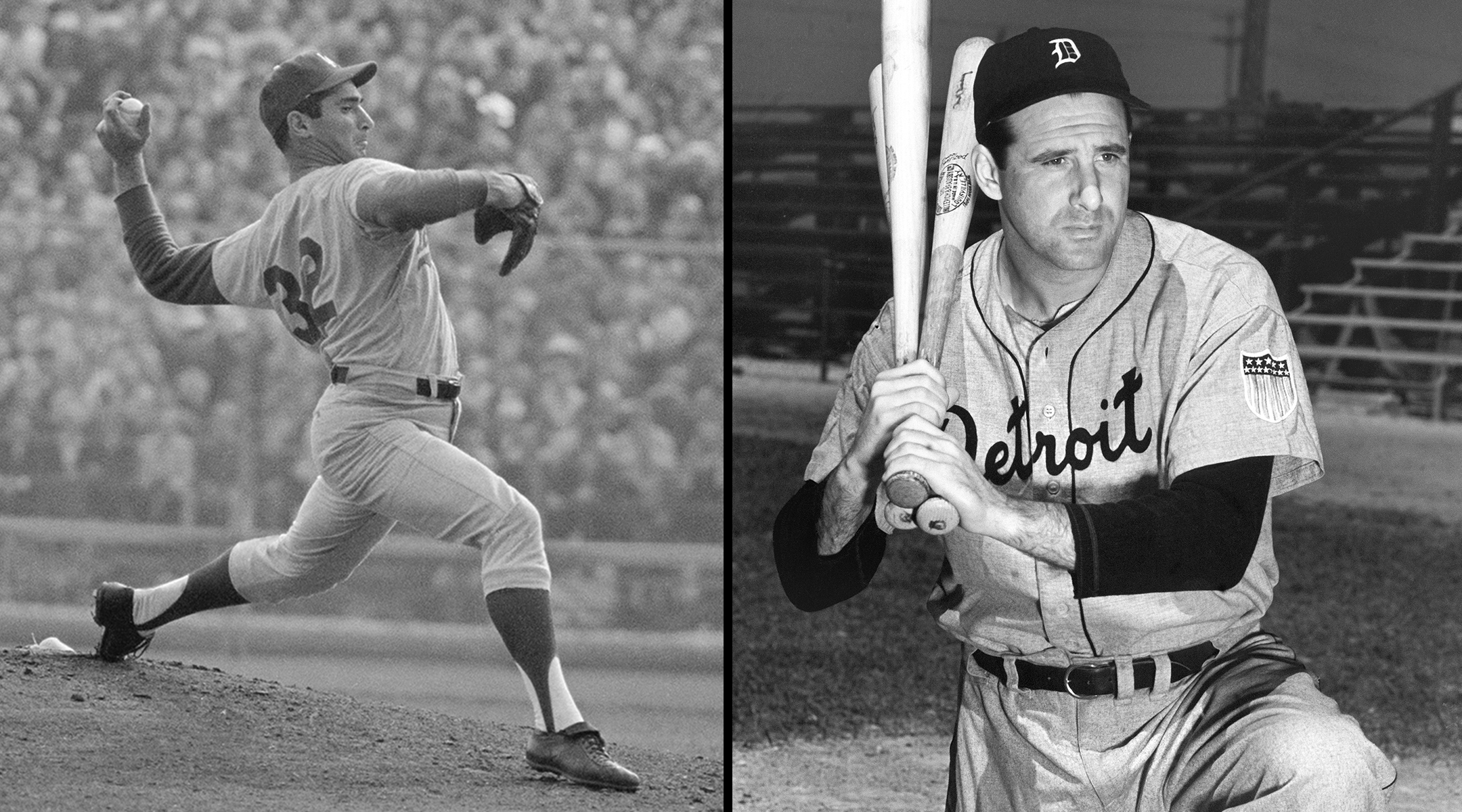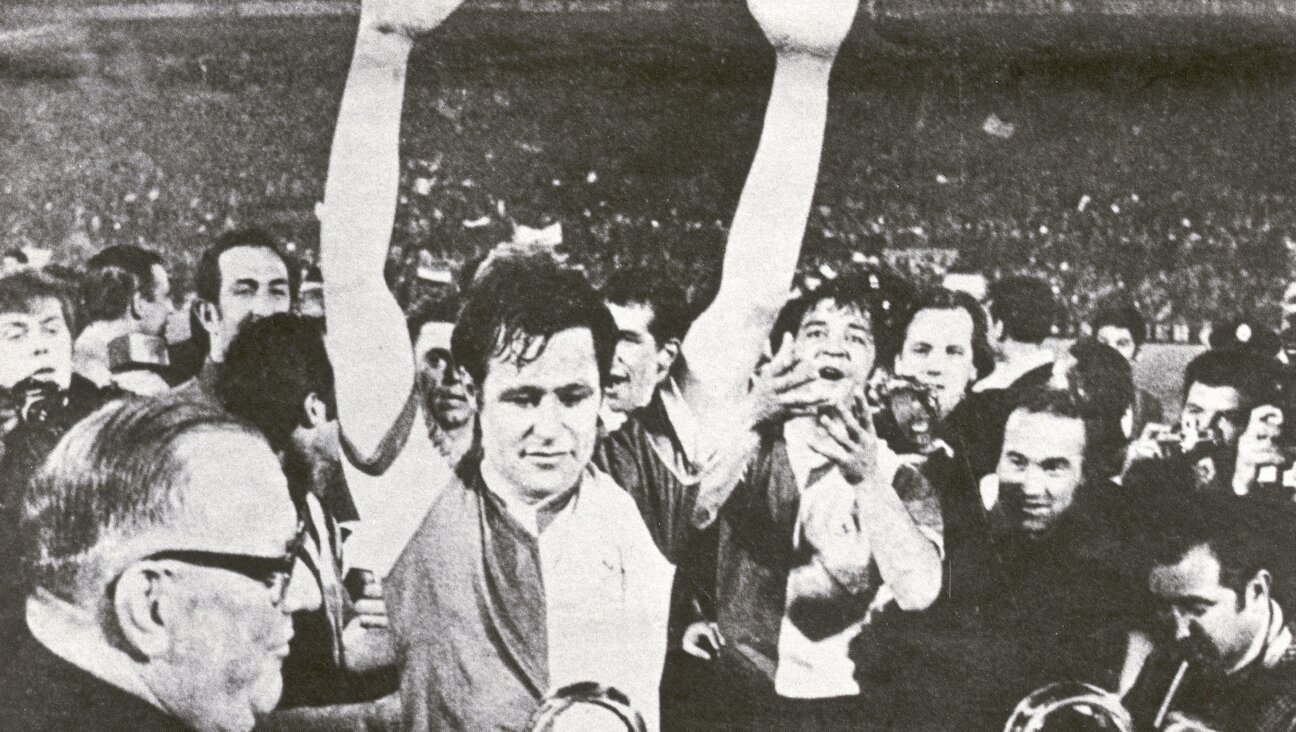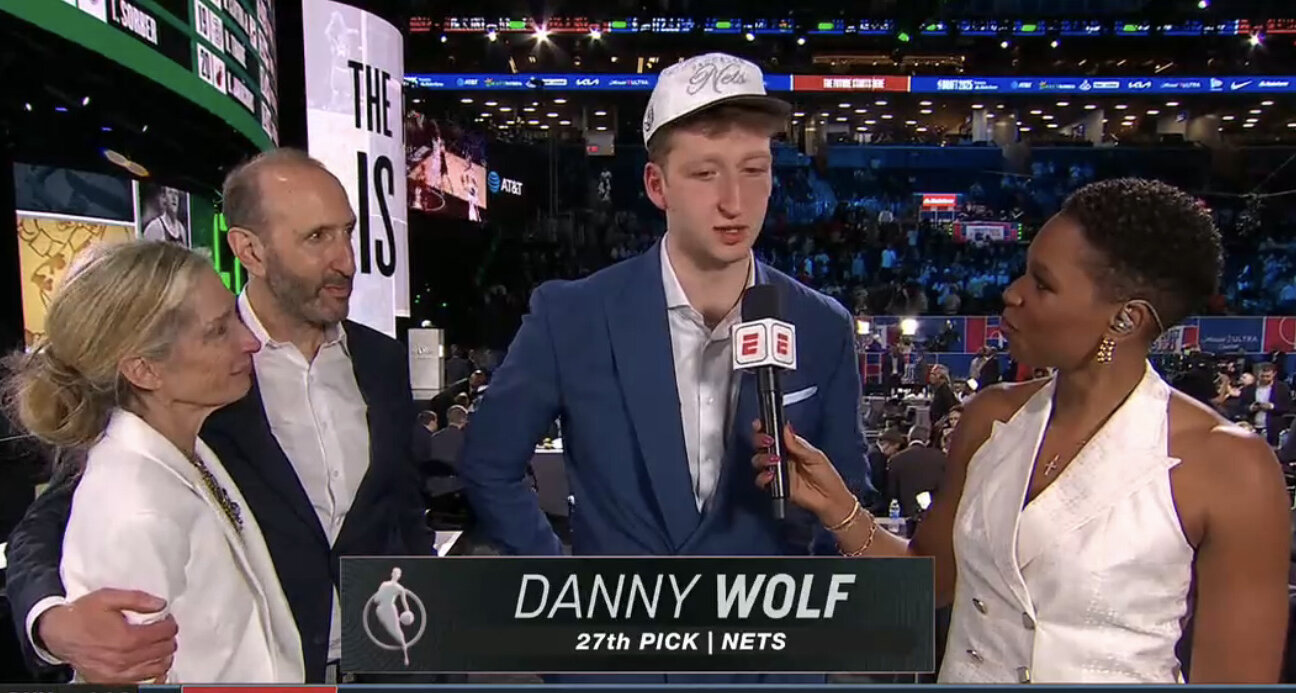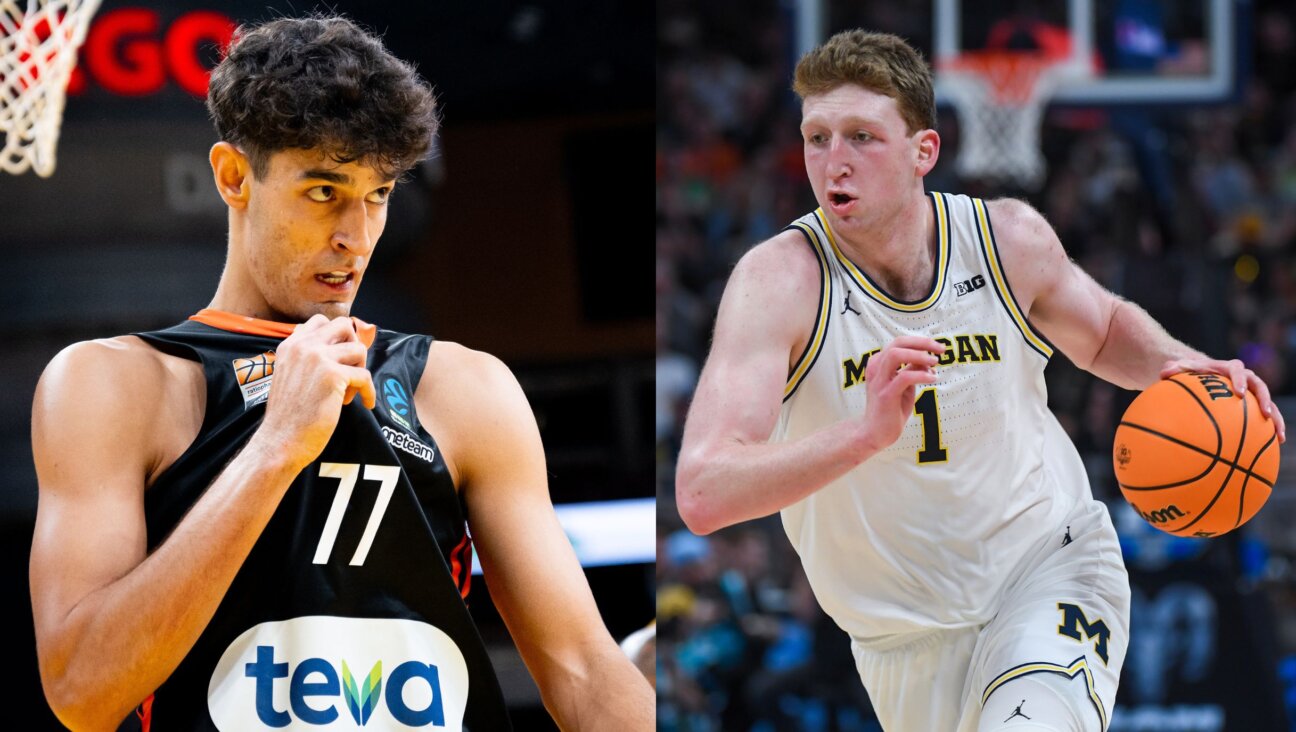Only 2 Jewish players are in the baseball Hall of Fame. Who could join Koufax and Greenberg in Cooperstown?
Jewish baseball experts weigh in

From left to right: Ryan Braun, Ian Kinsler, Hank Greenberg, Sandy Koufax, Max Fried and Alex Bregman (Getty Images; Design by Mollie Suss)
(JTA) — Any Jewish baseball fan knows the names of the two Jews in MLB’s Hall of Fame: Sandy Koufax and Hank Greenberg.
But since Koufax got his Hall call 52 years ago to the day — when he became the youngest player ever elected, at 36 — exactly zero Jewish players have made it into Cooperstown. And that drought will stretch for at least one more year: No Jews appear on the 2024 Hall of Fame ballot, whose voting results will be announced on Tuesday, Jan. 23, by the Hall’s Jewish president, Josh Rawitch.
Jewish players are actually pulling their weight, more or less, when it comes to making the Hall of Fame: Of the 20,532 players who have appeared in what is now known as Major League Baseball, 194 have been Jewish — a ratio of 0.9 percent. That’s not much higher than the 0.7 percent of Hall of Fame players who are Jewish — two out of 270.
Three Jewish executives — Barney Dreyfuss, Bud Selig and Marvin Miller — have also made the Hall. Two-time curse-breaking front-office maven Theo Epstein is a near certainty to join that group one day.
But for those eager to see another Jewish player inducted into the Hall, is there any hope? Is anyone worthy of joining Koufax and Greenberg in Cooperstown?
The Jewish Telegraphic Agency surveyed a number of Jewish baseball writers and experts — including the MLB’s official historian and multiple Hall of Fame voters — for their predictions. Read on to see what they said.
How to make it in

Sandy Koufax, left, and Hank Greenberg are the two Jewish players in the National Baseball Hall of Fame. (Getty Images)
For any baseball player, just getting onto the Hall of Fame ballot is an achievement.
To get a shot at the Hall, players need to have played 10 or more years in the major leagues. They must then pass a screening committee that filters out clearly under-qualified candidates (like Jewish veteran players Gabe Kapler and Jason Marquis, who didn’t make the cut in 2016 and 2021, respectively). Qualified players first appear on the ballot five years after retirement and can remain on the ballot for up to 10 years.
The ballot is voted on by members of the Baseball Writers Association of America, and to get into the Hall, a player must receive at least 75% of the vote. If he receives 5% or less, he’s removed from consideration in the future.
The last two Jewish players to appear on the ballot were Boston Red Sox first baseman Kevin Youkilis in 2019 and Houston Astros catcher Brad Ausmus in 2016. But the most recent Jewish player to receive any votes was Shawn Green in 2013, who got only two votes out of 569 ballots that year. One of the writers who voted for him, Jill Painter Lopez, cited his Jewish identity in justifying her vote. She did not respond to a request for comment.
Other Jewish players have had a shot in the past. Three-time World Series champion pitcher Ken Holtzman received votes in 1985 and 1986 but fell well short of induction. Lipman Pike, the first Jewish baseball star and one of the first professional baseball players ever in the 1860s-80s, received one vote in the veterans’ election in 1936, Cooperstown’s first year of voting.
The retired players with a chance

Ian Kinsler, left, and Ryan Braun are the next two Jewish players to join the Hall of Fame ballot. (Getty Images)
While no Jews are on this year’s ballot, one is on deck and another is in the hole.
Ian Kinsler, a four-time All-Star with a 14-year MLB career, is set to join the ballot next year. Ryan Braun, the former National League MVP with the most home runs of any Jewish player (352), will be on the ballot the following year, in 2026.
Kinsler — a former Team Israel player and manager who won two Gold Gloves for his defense and a World Series in 2018 with the Red Sox — is eighth all-time among second basemen with 257 home runs. By some metrics, Kinsler has a shot at a plaque in Cooperstown: He is 20th on sabermetrician Jay Jaffe’s ranking of second basemen by Hall of Fame worthiness, ahead of several Hall of Famers.
Braun, who spent his entire 14-year career with the Milwaukee Brewers, won the 2007 NL Rookie of the Year and the 2011 NL MVP. He also received six All-Star selections and five Silver Slugger awards for his offensive prowess.
Braun’s legacy was tarnished when he tested positive for performance-enhancing drugs and served a 65-game suspension in 2013. Other erstwhile all-time greats who were busted for steroids — such as Barry Bonds and Roger Clemens — have so far been denied Hall of Fame induction, an ominous sign for Braun.
But Braun, who sometimes went by the moniker “Hebrew Hammer” during his playing days, has gotten some recognition: He was recently chosen for induction into the International Jewish Sports Hall of Fame.
In the veterans committee category — where players who were not inducted on the ballot get a second look — Pike could be a candidate. He helped professionalize the sport and was one of baseball’s first sluggers. Pike led the sport in home runs four times (peaking at a grand total of seven home runs in a season — it was a different sport then) and finished his 10-year career with a .322 batting average.
What about active players?

Alex Bregman, left, and Max Fried are the top two Jewish players in the MLB today. (Getty Images)
Among players still on the field, Astros third baseman Alex Bregman and Atlanta Braves pitcher Max Fried are the best bets.
Bregman, the two-time All-Star and two-time World Series champion, has 165 home runs and a .274 batting average through his first eight seasons. He won the Silver Slugger in 2019, when he also came in second place in American League MVP voting. Bregman is additionally a decorated postseason hitter — he ranks in the top 10 all-time in postseason games, at bats, home runs, runs scored, total bases, runs batted in and walks.
A recent MLB.com article on “40 potential Hall of Famers we’ll see play in 2024” listed Bregman 17th, part of the third-ranked tier of players who are “well on their way.”
Bregman, who has been involved in the local Houston Jewish community, will also have to overcome an ethical asterisk on his baseball resume: the Astros’ 2017 sign-stealing scandal, which tainted the team’s championship season.
Fried’s biggest hurdle may be staying healthy. When he’s on the mound, Fried is among baseball’s elite starting pitchers — MLB Network ranked him the ninth-best starter entering 2024, and he was ranked seventh the year before. The Los Angeles native grew up idolizing Koufax and is a Maccabiah Games alum.
In 2022, Fried posted a 2.48 ERA with 170 strikeouts and 14 wins, finishing second in the NL Cy Young Award voting and earning his first career All-Star selection. He won three consecutive Gold Gloves from 2020-2022 and the 2021 Silver Slugger — the last-ever pitcher to win the offensive award. Fried also helped lead the Braves to a World Series title in 2021.
What do the experts say?
If there’s one thing Jews and baseball fans both love, it’s a debate. We reached out to a number of Jewish baseball writers, some of whom vote on the official Hall of Fame ballot, to seek their predictions.
Here’s what they had to say.
Ken Rosenthal, senior baseball writer for The Athletic and a Hall of Fame voter:
I’ll go with Bregman. He’s not really on a Hall of Fame track at the moment, but he still has a chance to have a long, stellar career. And by the time he is eligible — probably 10 or more years from now — the sentiment against members of the sign-stealing Astros might be diminished. [His Astros teammate Jose] Altuve could be in by then.
Jonathan Mayo, reporter for MLB.com and MLB Pipeline:
As a Jewish fan of baseball, I wholeheartedly wish there was an obvious “next up” for Cooperstown. As someone who writes about the game professionally and analyzes it, however, I can’t see anyone who currently fits the description. Alex Bregman is having a very good career and Max Fried has had some very good seasons, but I think their ceiling is the “Hall of Very Good.” I love young players like Zack Gelof, and you should never say never (keep an eye on his brother, Jake, too!), but again, they don’t jump out as Hall-worthy type players. But that won’t keep me from wishing.
Bob Weschler, managing editor of jewishbaseballmuseum.com:
Of the current active players, Max Fried might have the best shot if he stays healthy. He’s a free agent next year, and signing with a media-saturated, successful franchise like the Dodgers could help his chances.
It’s too soon to consider Zack Gelof, who’s only played 69 games. Only 20 second basemen are in the Hall.
It’ll never happen, but Lipman Pike — the first home run champion — should be in the Hall.
If we’re talking non-players, Theo Epstein will be the next Jewish inductee.
Jayson Stark, senior baseball writer for The Athletic and a Hall of Fame voter:
Is Alex Bregman going to wind up Cooperstown? He’d be my pick from the current pool of active Jewish players.
He ranks top 10 in the modern era among all third basemen in a category I look at closely — park-adjusted, era-adjusted OPS+. And he’s an excellent defender who is still agile enough to play shortstop.
Seven full seasons into his career, he has never had a bad season. And he’s made an indelible impact on a team that has done nothing but win since he showed up. But now comes the hard part — his 30s!
He hasn’t reached 1,000 hits or 200 homers yet. So these next seven years are going to have to look a lot like his first seven.
But I’ve always believed you can’t be great at anything unless you aspire to be great. And it’s always clear that greatness is where Alex Bregman sets his bar.
Scott Barancik, editor of jewishbaseballnews.com:
No current or recent Jewish player has much chance of making the Hall, in my opinion. Ryan Braun is out due to PED use. Alex Bregman is a no because of Houston’s sign-stealing scandal. Active veterans lack Hall-level stats. As for newbies like Zack Gelof and Matt Mervis, it’s too soon to tell. The player with the best chance? I’d say Max Fried. But pitcher is by far the most competitive position in Hall voting.
Howard Megdal, author of “The Baseball Talmud: The Definitive Position-by-Position Ranking of Baseball’s Chosen Players”:
It is tempting to select Max Fried and his 2.66 ERA since 2020, but the counting stats may work against him, even with two top-five Cy Young finishes and three Gold Gloves by age 29.
Similarly, Zack Gelof’s OPS+ of 137 as a rookie was overshadowed by the Oakland Athletics’ team drama but remains one of the most impressive rookie seasons of any Jewish player. For comparison: Hank Greenberg’s rookie OPS+ was 119, Al Rosen’s 145.
But my pick for the next Jewish Hall of Famer is Alex Bregman. Through his age-29 season, he’s already collected 35.4 win shares, 19th all-time among third basemen through age-29. Most of the third basemen ahead of him are in the Hall of Fame — the third baseman just below him is the late, great Brooks Robinson. He’s consistent, he’s durable, he’s yet to post what anyone could consider a down year, and he’s got precisely the type of makeup and profile that should age well. (As Al Rosen proves, durability is as important as dominance when it comes to creating a Hall of Fame resume.)
There aren’t enough third basemen in the Hall of Fame. And Alex Bregman is a good bet to fix that.
Finally, MLB’s official historian, John Thorn, said he believed that no Jewish player aside from Koufax and Greenberg are worthy of entry to Cooperstown. Rather than offer a prediction — “my crystal ball works only in retrospect,” he said — Thorn shared his insight on why Jews love baseball.
“First, because in Europe outdoor play had been forbidden to their children,” he said in an email to JTA. “Second, because for an oppressed people it offered a window onto freedom and joy; and third, because it promised a level playing field from which heroes might emerge, like Hank Greenberg and Sandy Koufax … heroes who were like us.”
This article originally appeared on JTA.org.





















